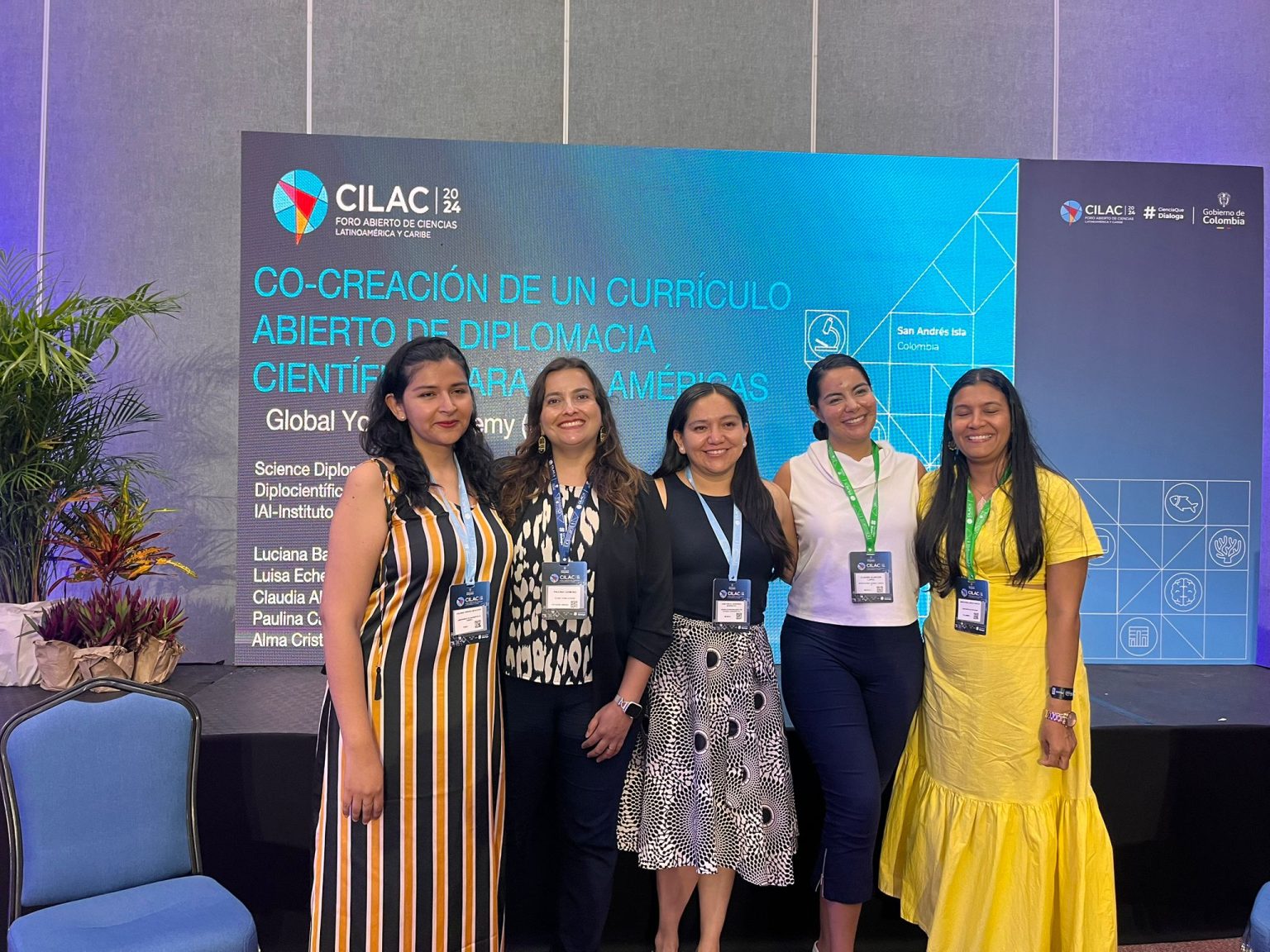In December, the CILAC 2024 (Foro Abierto de Ciencias de Latinoamérica y el Caribe – CILAC), the premier science and technology policy for Latin America and the Caribbean, provided a prominent platform for the work and ideas of the Science Diplomacy in the Americas Working Group (WG), with GYA member Alma Cristal Hernández Mondragón (Center for Research and Advanced Studies of the National Polytechnic Institute, Mexico) and alumna Paulina Carmona (University of California-Davis, United States) participating in person in San Andres.
Alma and Paulina presented the session “Co-creation of an open curriculum for teaching science diplomacy in the Americas” (Co-creación de un plan abierto de estudios de diplomacia cientifica para las Americas), which also featured GYA members Luciana Balboa (Instituto de Investigaciones Biomédicas en Retrovirus y Sida (INBIRS), University of Buenos Aires-CONICET, Argentina) and Luisa Echeverría-King (Universidad Simón Bolívar, Columbia) as speakers.
Together, the speakers unveiled an innovative proposal for a science diplomacy curriculum aimed at empowering teaching in this critical field. The team emphasized collaboration, interdisciplinarity, and accessibility as cornerstones of the project, seeking partnerships to expand its reach and impact. They explained the methodology followed for the first proposal, which consisted of interviews with experts from the region and a bibliographic review of scientific articles and existing course curricula in the field.
The event also welcomed contributions from the IAI Diplomacy Center’s STEP Fellow Claudia Alarcón. Claudia shared perspectives and updates on IAI’s current efforts in science diplomacy, enriching the discussion with practical approaches and lessons learned. Her presentation underlined the alignment of academic and diplomatic goals to foster regional cooperation.
The session stood out as a vibrant combination of academic discourse and diplomatic engagement, highlighting the intersection of science and international relations. Participants explored opportunities to strengthen networks, integrate regional perspectives, and secure funding for this ambitious initiative.
The fellows of the first LAC SLP, including new GYA member Melina Flórez Cuadros (Universidad Peruana Cayetana Heredia, Peru), also participated during the forum, presenting the main deliverable of the program: “Declaration of Leticia: a manifest for science with social impact in Latin America and the Caribbean” , sparking conversations about the proposals from the two policy briefs that are part of the Declaration. The program concept and its impact received attention and interest, to continue future iterations in the LAC region.
Once again, CILAC 2024 proved to be a pivotal space for collaboration in the region, reaffirming the importance of science diplomacy as a tool to address global challenges and promote sustainable development in the Global South.
